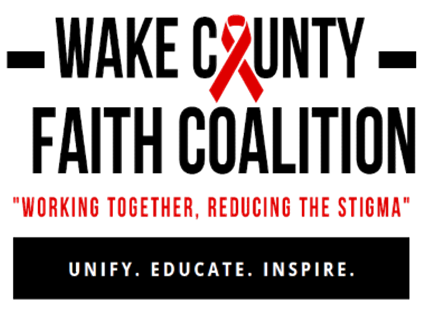The HIV/STD Community Health Teams offer a range of programs and services throughout Wake County, including HIV/STD testing and health education. We are comprised of health educators, testers, and counselors, as well as public health nurses.
We are dedicated to providing exceptional care to all individuals seeking testing and education. If your agency, community group, or faith-based organization would like to invite a trained health educator, request testing, or nursing services, please complete the Request for HIV/STD Health Education and Testing Form.
Health Education Topics
- HIV and STD Prevention Education
- Healthy Relationships
- Effective Communication
- Gender and Health
- Decision-Making Skills
HIV/STD Testing includes:
- Chlamydia
- Gonorrhea
- Syphilis
- HIV
- Hepatitis C
Public Health Nurse Services
- Mpox vaccinations
- Harm reduction strategies
- Substance use disorder assistance
- Resource referrals
- Clean works
- Wound first aid
HIV/STD Prevention Education Programs & Services
Sexually Transmitted Diseases (STD) Resources
STD Quick Guide
Sexually Transmitted Diseases (STDs) Quick Guide Source:
https://www.cdc.gov/sti
| STD | SYMPTOMS | FACTS |
| Chlamydia (Curable) |
|
|
| Gonorrhea (Curable) |
|
|
| Syphilis (Curable) |
|
|
| Trichomoniasis (Curable) |
|
|
| Herpes (Not Curable) |
|
|
| Human Papillomavirus – HPV (Not Curable) |
|
|
| Human Immunodeficiency Virus (HIV) & Acquired Immunodeficiency Syndrome (AIDS) (Not Curable) |
|
|
| Hepatitis B (Not Curable) |
|
|
| Hepatitis C (Curable) |
|
|
Health Education Classes/Programs
The HIV/STD Community Program's Health Education team provides effective prevention services for a wide range of audiences. Programs and classes are free and available in English and Spanish. Focuses for these programs include, but are not limited to:
- HIV and STD Prevention Education
- Healthy Relationships
- Effective Communication
- Gender and Health
- Decision-Making Skills
Condom Distribution Sites (CDS)
The CDS program provides free condoms and educational materials to participating barber shops, beauty salons, tattoo parlors, laundry mats, markets and other local businesses. These community partners volunteer to display CDS materials free of charge to improve community members' access to condoms and education and testing information.
Find a current list of condom distribution sites.
For more information on how to be a CDS contact Fiona Allen, Community Health Worker
Community Initiatives
Peer Health Education Programs
Peer Health Educators are specially trained to provide appropriate sexual health information and referrals to their friends and family members. Peer educators play an important role in reducing HIV and other sexually transmitted infections because they are able to speak openly with people who may not otherwise be aware of more formal services. Free training and education materials are provided in English or Spanish by experienced HIV/STD Program staff.
- #SafeFalcons, Peer Health Educators—St. Augustine’s University (SAU)
- The #SafeFalcons are a group of SAU students trained to plan and implement programs on campus focused on: Sexual health, mental health, substance abuse, and healthy relationships
- Mental and Physical Health Educators—Shaw University (SU)
- The Mental and Physical Health Educators are a group of SU students trained to plan and implement programs on campus focused on: Sexual health, mental health, substance abuse, gambling prevention, and healthy relationships.
- Promotores de Salud—El Centro Hispana
- The Promotoras are community health workers and lay-health leaders who work primarily in Spanish-speaking communities to promote health education.
Wake County Faith Coalition

The Wake County Faith Coalition’s mission is to unify community leaders in the African American faith community to break down communication barriers and create opportunities for HIV prevention education with unconditional compassion. Through unification, education and empowerment, the Wake County Faith Coalition hopes to expand the communication about sexual health in faith communities and work to eliminate the HIV disparity associated with the Black/African American community.
The coalition works to:
- Ensure that faith communities have accurate and relevant education regarding sexual health and HIV prevention;
- Promote communication between faith leaders and create partnerships to eliminate stigma; and
- Offer support/assistance to faith communities and encourage them to become more involved in issues related to HIV.
Please email STD.program@wake.gov for meeting dates or additional information about the coalition.
Wake Partners HIV/STI Coalition
This task force is being formed in an effort to reduce county STD rates, amongst high-risk populations, underserved minority youth and young adults. Wake County Health and Human Services, HIV/STD Community Program has partnered both internally and externally throughout the county.
Wake County cases of Sexually Transmitted Diseases (STDs) are continuously on the rise with large increases in gonorrhea, chlamydia and syphilis. The primary goals of the task force will be to:
- Reduce STD rates in Wake County;
- Increase education on STDs amongst high risk populations, underserved minority youth and young adults; and
- Increase prevention education, screening and treatment efforts within the community.
Please email Nikita Spears (Nikita.Spears@wake.gov) for meeting dates or additional information about the task force.
Contact Us
For information about the HIV/STD/HEP C Community Program:
919-250-3883
std.program@wake.gov
Follow us on Facebook! Facebook.com/wakegovhiv
